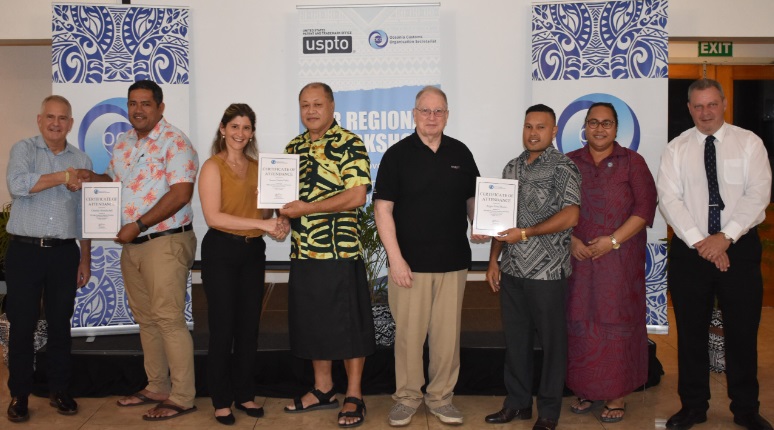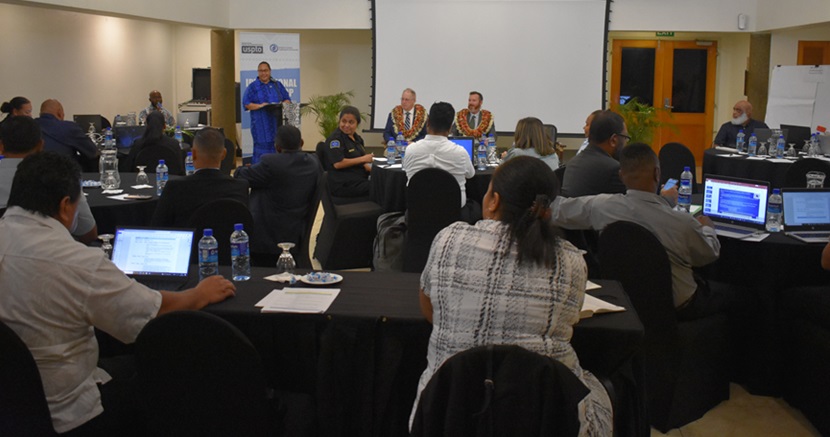Senior Customs and Intellectual Property Rights (IPR) officers in the region recognise the difficult tasks they have, to counter the rise of trade in counterfeits, which is increasingly flooding the Pacific and posing a real and grave threat to the health and safety of our people.
Last week in Lautoka, Fiji, the officers met to discuss ways, including the updating of Intellectual Property Rights (IPR) laws to stop the trade of counterfeits which range from clothes, food, medicines to machinery, pesticides and electronic gadgets.
“Because counterfeiters are only in that business to take advantage and profit by deceiving the public into purchasing counterfeit goods, they will lower the standards of their inputs to reduce costs and maximise profit,” Acting Head of the Oceania Customs Organisation Irma Daphney Stone.
“In lowering these standards, many counterfeited goods pose significant health and safety risks to us consumers. The threats range from counterfeit foodstuff and medicines missing important nutrient or medical ingredients as well as vital car parts such as brake-pads being made from sub-standard or dangerous materials. Those are some of the real threats.
“In terms of food security, fake agriculture products that are harmful to the environment can easily wipe out a country’s production yield. We must be very alert at the borders to stop these counterfeits from entering our countries.”
As seen in global trends, financial proceeds generated from counterfeiting and piracy operations also fund other criminal activities including the illicit drug trade.

The challenges for Customs and IPR officers in the region include policing IPR infringements in the absence of appropriate laws and having the appropriate expertise to recognise counterfeits at the borders.
The workshop was supported by the United States Patent and Trademark Office (USPTO) and the Australian Border Force, who shared experiences and international best practices.
“In order to get our house in order- first and foremost we need to have a legislation framework nationally. We are glad to note most of our members have an IPR legislative framework and for the few who do not have there is a recognition to work on this. We also acknowledge the importance of not only having our Customs officers in the workshop but having our legal officers and national IPR offices included. This has strengthened the network as collaboration with national agencies is needed to embed the framework in place. It will not be easy as our members have conflicting priorities nevertheless this work is needed as it is linked to strengthening trade management, revenue collection and at the same time protecting our borders,” Stone said.
Kelemete Vahe, CEO of Tonga’s Ministry of Revenue and Customs said the region should be alert that more criminals around the world are moving into the business of counterfeiting and piracy because the business is low risk but high reward for them.
“We are deeply concerned with the trade of counterfeit medicines and substandard medical equipment because this will impact on the health of our people.
“The benefits for criminals far outweigh the risk of getting caught and they continue to make millions of dollars at the expense of legitimate businesses and to the detriment of consumers.
“In view of the considerations, it is clear that our perception of IP crimes in the region must evolve. IP infringing through counterfeiting and piracy is definitely a huge threat to our health and safety and therefore deserves our due consideration and attention,” Vahe said.
The workshop had participants from Australia, Fiji, Kiribati, Nauru, Niue, Palau, Samoa, Solomon Islands, Timor Leste, Tuvalu, Tonga and Vanuatu and resource experts from the Australian Border Force and the USPTO.
SOURCE: OCO SECRETARIAT/PACNEWS











